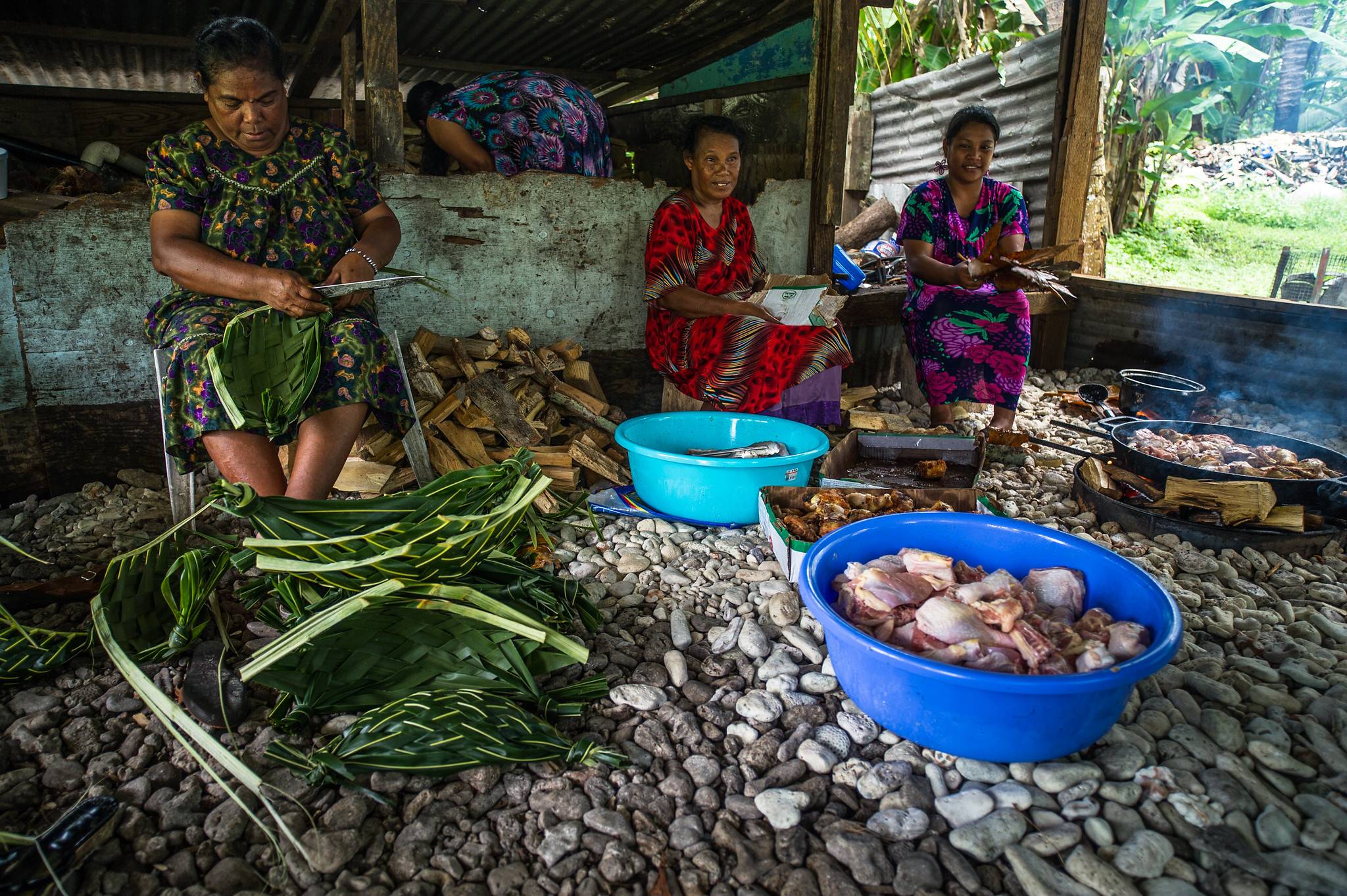
National SCP context and Connection to the Global Agenda: food security and waste management
The National Strategic Plan (NSP) 2020-2030 of the Marshall Islands (RMI) serves as a comprehensive roadmap guiding sustainable development and long-term progress. The plan is complemented by a National Monitoring & Evaluation Framework, which aligns with regional and international commitments, including the Pacific Regional Framework, the Samoa Pathway, and the SDGs.[1] RMI is committed to addressing waste management and is a signatory to multiple environmental agreements and legislation, including the Montreal Protocol, Basel Convention, Rotterdam Convention, and Stockholm Convention. RMI has also implemented the Solid Waste Regulations (1989), the Styrofoam Cups and Plates and Plastic Products Prohibition, and the Container Deposit Act (2016).[2]
Challenges
- Food security poses a significant challenge in the country, with agriculture heavily dependent on fresh groundwater for crops like taro, coconuts, breadfruit, and pawpaw, as well as for commercial copra production. However, climate change is reducing agricultural output, leading to increased reliance on imports.[3]
- The invasive weeds, creating a serious problem for ecosystems and climate change, require effective management, crucial for enhancing community resilience.
- The reliance on government subsidies for copra processing, primarily through the Tobolar Copra Processing Authority, a State-Owned Enterprise (SOE), presents hurdles for sustainable consumption and production, indicating industry inefficiencies that can lead to adverse economic effects.[4]
- The high costs of equipment maintenance and limited land and space capacity are challenges faced by local recycling efforts.2
- The country faces challenges in building and maintaining efficient e-waste management systems, as e-waste is often considered a low priority in policy.[5]
Priority sectors
- The Agriculture Division of the Ministry of Natural Resources & Commerce (NRC) prioritizes sustainable consumption and production by emphasizing the identification of trees for medicinal purposes and fostering the cultivation of local produce.2
- The Local Government & Historic Preservation Office (MOCIA) contributes to sustainable consumption and production by focusing on food security capacity building in neighboring islands, specifically on local food protection and preservation.2
- Strengthening waste management includes handling chemicals, pollutants, and other recyclable items, as well as promoting local recycling2and addressing organic waste through waste-to-energy initiatives.[6]
- The NSP aims for a 4% annual increase by 2030, with tax reform as a key part of ongoing PFM reforms. This prioritizes sustainable consumption and production, aligning tax policies with sustainability goals and promoting eco-friendly practices.2
- Fisheries are the RMI's most valuable natural resource, with commercial fishing fees being a major source of government revenue.2
Opportunities
- Supporting the local governments, as they have taken initiatives to develop ordinances on lagoon conservation, regarding the safe and sanitary growing, harvesting, and selling of natural (water-based) resources.2
- Opportunities to support them arise from the Marshall Islands' strong commitment to achieving at least 70% of the relevant provisions of key MEAs.2
- Increasing the supportation for local crop cultivation and consumption will encourage a more sustainable import substitution pattern.
- Supporting the country to minimize waste, promote reuse and repair, regenerate resources, and transform practices, with an emphasis on sustainable disposal and processing, including waste-to-energy, limiting waste export, and managing e-waste6.
- Supporting government measures to boost economic activity by offering incentives to encourage increased transshipment, onshore fish processing, and vessel support services.
[1] Republic of the Marshall Islands. (2020). National Strategic Plan 2020 - 2030
[2] Republic of the Marshall Islands. (2016). Plastics Products Prohibition Act
[3] World Bank Group & ADB. (2021). Climate Rick Country Profile: Marshall Islands
[4] IMF. (2023). Republic of the Marshall Islands: 2023 Article IV Consultation-Press Release; Staff Report; and Statement by the Executive Director for RMI
[5] UN. (2024). The United Nations Common Country Analysis for the Micronesia Subregion 2024/25
[6] Republic of the Marshall Islands. (2025). Nationally Determined Contribution 2031-35


